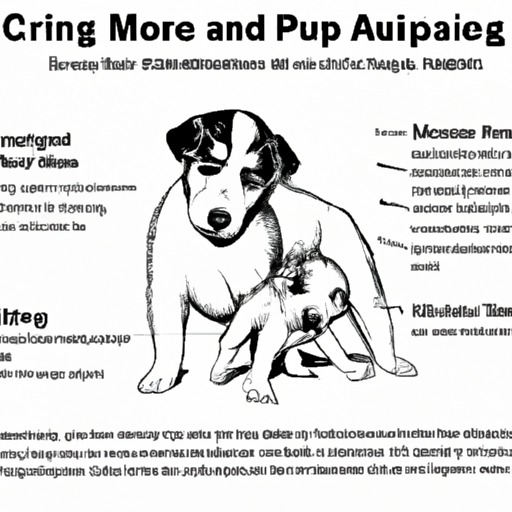As a caregiver, you know that the birth of a new litter of puppies is a joyous event. However, it also comes with several responsibilities and concerns. One topic that often raises questions is the postpartum bleeding in dogs. How long does it last? What is normal, and when should you be worried? This article will provide you with an in-depth understanding of these questions and more.
Table of Contents:
- Understanding Postpartum Bleeding in Dogs
- Normal Duration of Postpartum Bleeding
- When to Worry?
- How to Care for a Dog After Giving Birth
- Frequently Asked Questions
Key Takeaways:
- Postpartum bleeding in dogs is normal and can last for several weeks.
- The color and consistency of the discharge can vary.
- Postpartum complications can occur, and you should be aware of the signs.
- Proper care and attention are essential during this period.
Understanding Postpartum Bleeding in Dogs
After giving birth, it’s normal for dogs to experience vaginal bleeding. This discharge, known as lochia, includes tissue and blood from the lining of the uterus that was not expelled during birth. It’s an integral part of the recovery process and should not be a cause for alarm.
If you’re a first-time caregiver, this guide on ‘Postpartum in Dogs’ could be a helpful resource to understand what’s happening during this period.
Normal Duration of Postpartum Bleeding
Typically, dogs bleed for about six weeks after giving birth. However, each dog is different, and the duration can vary. The bleeding usually starts heavy and then gradually lessens over time. By the end, it should be no more than a light pink or clear discharge.
Here’s a rough timeline for you to refer:
- Week 1: Heavy bleeding with bright red blood.
- Week 2-3: Less bleeding, the color changes to brownish-red.
- Week 4-6: Minimal discharge, color varies from light pink to clear.
This post on ‘Postpartum Bleeding in Dogs’ can give you an idea of what to expect during this time.
When to Worry?
While postpartum bleeding is normal, there are signs that could indicate a problem. You should be concerned if:
- The bleeding is excessively heavy or continues to be bright red beyond the first week.
- Your dog appears lethargic or unresponsive.
- She experiences fever, loss of appetite, or foul-smelling discharge.
These symptoms can be indicative of a postpartum complication such as metritis (inflammation of the uterus) or a retained placenta. In such cases, immediate veterinary attention is required.
You can find more details about these complications in this article on ‘Dog Health Issues’.
How to Care for a Dog After Giving Birth
During this crucial period, your dog needs all the care and attention she can get. Here’s what you can do:
- Ensure she has a comfortable and clean place to rest with her puppies.
- Provide her with nutritious food and plenty of water.
- Monitor her behavior and the discharge regularly.
- Keep her stress levels low.
- Regularly check on the puppies’ health.
This guide on ‘Caring for a New Mother Dog’ provides comprehensive advice on the best practices during this period.
Frequently Asked Questions
1. Can I bathe my dog while she’s still bleeding?
It’s advisable to wait until the bleeding has stopped completely before bathing your dog. However, you can gently clean the vaginal area with a damp cloth if necessary.
2. How long after giving birth can my dog be spayed?
It’s best to wait at least 2-3 months after your dog has weaned her puppies before considering spaying. Always consult with your vet first.
3. Can my dog go outside while she’s still bleeding?
Yes, but keep her outings short and clean her vaginal area after each trip outdoors to prevent infection.
By understanding the natural process of postpartum bleeding and when to seek help, you can ensure that your dog has a healthy recovery after giving birth. Remember, the best thing you can do is provide her with love, care, and patience during this time.



